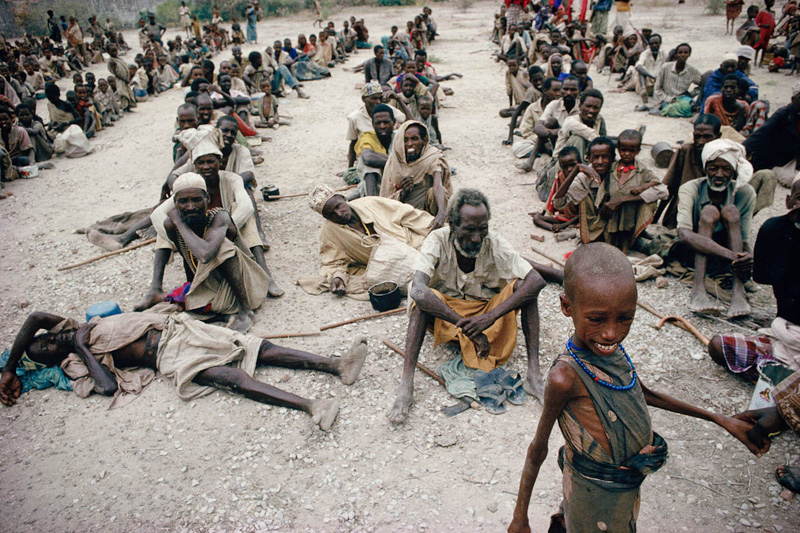
311MD: This is an extremely difficult to answer question in a manner for a 5 year old to understand because it requires a basic biochemistry background to understand but here it goes:
In starvation mode your body is conserving energy. It takes a little energy to digest food and get things going. To make this energy your need the elements potassium, phosphorous and magnesium (how and why is beyond the scope of this question)
Since you have starved, your body’s supply of potassium, magnesium and phosphorous are low and are supplying energy to the necessary functions of your body for survival. When you eat, the demand for energy increases to the point where your body cannot produce the necessary energy to digest the food (you lack the 3 key elements in sufficient quantities). Your blood levels of potassium, magnesium and phosphorous go into dangerously low levels that cause cardiac arrest, irreversible neurological problems (because your body’s reserves of those elements gets immediately depleted while your gut tries to make the digestive acids, bile, energy for movement through the GI tract). This is **”refeeding syndrome”**
Hope this helps
AlamutJones: It’s called “refeeding syndrome”
When you’ve been starving/deprived for a long time, your body shuts down everything it can get away with. Growth, reproduction, anything that can go offline or run at bare minimum will start to do so. Remember that physical processes (including digestion) demand energy and nutrients to do, which a starving body can’t spare. Everything has to go towards the absolute essentials, keeping the heart and brain going.
If you were starving and were suddenly given a lot of food (especially rich food) *your body wouldn’t know what to do with it*. You’re still in starvation survival mode, so non-essentials like digestion are basically ignored. If they function at all, it’s bare minimum. All the food overloads this barely functioning system.